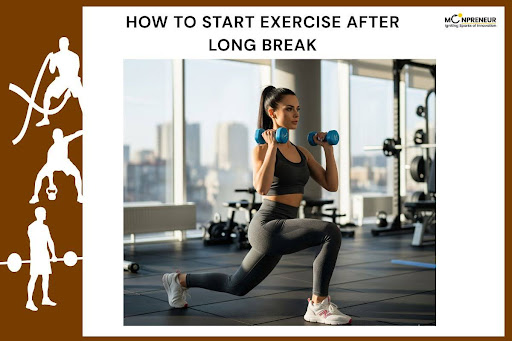Ever caught yourself staring at a textbook or screen, re-reading the same line multiple times, and still not absorbing anything? You’re not alone. Many students push themselves to study harder and longer, but this often leads to mental fatigue, stress, and poor focus. Surprisingly, the real key to boosting productivity, improving memory, and achieving better grades might lie in stepping away from the books and moving your body.
The Science Behind the Exercise-Study Connection

Exercise doesn’t just build stronger muscles — it builds a stronger brain. Here’s how short, intentional workouts can power up academic performance:
- Boosts blood and oxygen flow: Physical activity delivers more oxygen and nutrients to the brain, helping you stay alert and focused.
- Activates brain chemicals: Movement releases dopamine, serotonin, and norepinephrine — neurotransmitters that enhance mood, memory, and motivation.
- Strengthens memory pathways: Exercise supports memory consolidation, turning what you’ve just studied into long-term knowledge.
- Supports brain plasticity: Movement encourages the brain to form new neural connections, making it easier to adapt and learn.
- Improves sleep quality: A well-rested brain performs better on exams and retains information more effectively.
Recommended Reading: Top 11 Parenting Mistakes That Can Adversely Impact Your Child’s Growth
How to Use Exercise Breaks for Academic Success
The secret isn’t long, draining workouts — it’s about short bursts of activity. A quick 15–20 minute session before or during study time can re-energize your brain without leaving you exhausted. Think of it as a reset button: a way to return to your notes or assignments with sharper focus and renewed motivation.
Matching Exercise to Study Challenges
1. Feeling mentally drained?
Try a brisk walk or light jog outdoors. Fresh air plus movement gets more oxygen circulating in your brain, clearing mental fog. If you’re stuck inside, even climbing stairs or marching in place works wonders.
2. Struggling to retain information?
Opt for interval-based workouts like jumping jacks, sprints, or cycling. High-intensity movement stimulates brain chemicals that boost concentration and help lock new information into memory. Over time, this type of training can even enlarge the hippocampus — the brain’s learning and memory center.
3. Late-night study sessions?
Avoid intense cardio that might keep you wired. Instead, choose low-impact strength moves like wall sits, gentle core exercises, or restorative stretches. These movements increase circulation without disrupting sleep cycles, keeping your brain sharp for the next day.
4. Overwhelmed by stress?
Calming exercises like yoga, tai chi, or guided stretching can lower stress hormones and activate the parasympathetic nervous system — your body’s natural relaxation response. Pairing these with deep breathing before an exam can calm nerves and steady focus.
5. Lacking motivation?
If you’re dragging your feet, try energetic group workouts, dancing, or even shadow boxing. The surge of endorphins — often called the “runner’s high” — lifts your mood, builds confidence, and helps you return to your studies with a positive mindset.
Recommended Reading: How to Prepare Your Child for Boarding Schools
Building Exercise into Your Study Routine
Consistency matters. Instead of waiting until exam week, make movement a part of your regular study habits. For example:
- Set a timer and stretch every 45–60 minutes.
- Use workouts as a reward after finishing a study goal.
- Switch study spots with a quick walk in between.
Schedule morning exercise to boost energy for the entire day.
Final Thoughts
Better grades don’t always come from longer hours of studying — sometimes they come from smarter breaks. Exercise isn’t just good for the body; it’s a powerful tool for the brain. By improving focus, reducing stress, and strengthening memory, even short bursts of movement can help students perform their best academically. The next time you feel stuck, tired, or unmotivated, step away from the books and step into a quick workout — your mind will thank you.
Moonpreneur is on a mission to disrupt traditional education and future-proof the next generation with holistic learning solutions. Its Innovator Program is building tomorrow’s workforce by training students in AI/ML, Robotics, Coding, IoT, and Apps, enabling entrepreneurship through experiential learning.
FAQs:
Yes. Exercise increases blood flow to the brain, improves memory retention, reduces stress, and boosts focus — all of which directly support academic performance.
A 15–20 minute workout or movement break is ideal. It refreshes your brain, sharpens focus, and prevents fatigue without cutting too much into study time.
Aerobic exercises like brisk walking, jogging, cycling, or jumping jacks are excellent for increasing oxygen to the brain, which improves concentration and alertness.
Calming activities like yoga, stretching, or tai chi are great before exams. They reduce stress, steady breathing, and help you stay calm and focused.
Yes. Studies show that regular exercise strengthens the hippocampus, the brain region responsible for learning and memory, making it easier to retain information long-term.
Light exercise before studying boosts focus, quick activity breaks during study sessions reset energy, and morning workouts help keep you alert throughout the day.

























